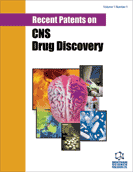Abstract
Background: Peptides are usually used to investigate regulatory networks and protein function. They can also be used in therapeutic research: They are employed both to identify and later to validate therapeutical target and in drug discovery processes. Their development enables the identification of several protein surfaces as crucial therapeutic targets and to promote the discovery of small drugs specific for these molecular interfaces.
Methods: This review was developed through the research of online content and patents related to natural and de novo designed peptides in neurological diseases studies. The effects of natural and derived peptides and/or peptidomimetic on models of neurodegenerative diseases and other neurological disorders were discussed.
Results: Many peptides are frequently identified as receptor antagonists, inhibitors of protein–protein interactions and several of them and/or peptide-derived compounds are commercial drugs or in clinical trials. Thus, peptide research could play a crucial role in the identification of protein ligands. Despite these favorable properties, they present low bioavailability and metabolic stability respect with traditional drugs. New synthetic strategies for limiting metabolic degradation and alternative routes of administration have been conceived to enlarge the number of peptide-based drugs in preclinical phases.
Conclusion: Peptide-based drug discovery is an important option to address common therapeutic challenges including human neurological diseases.
Keywords: Peptides as drugs, peptidomimetics, neurological diseases, therapeutic drugs, denovo designed peptides.
 37
37





















